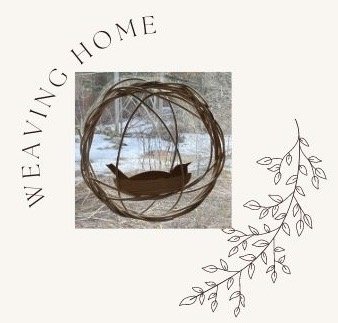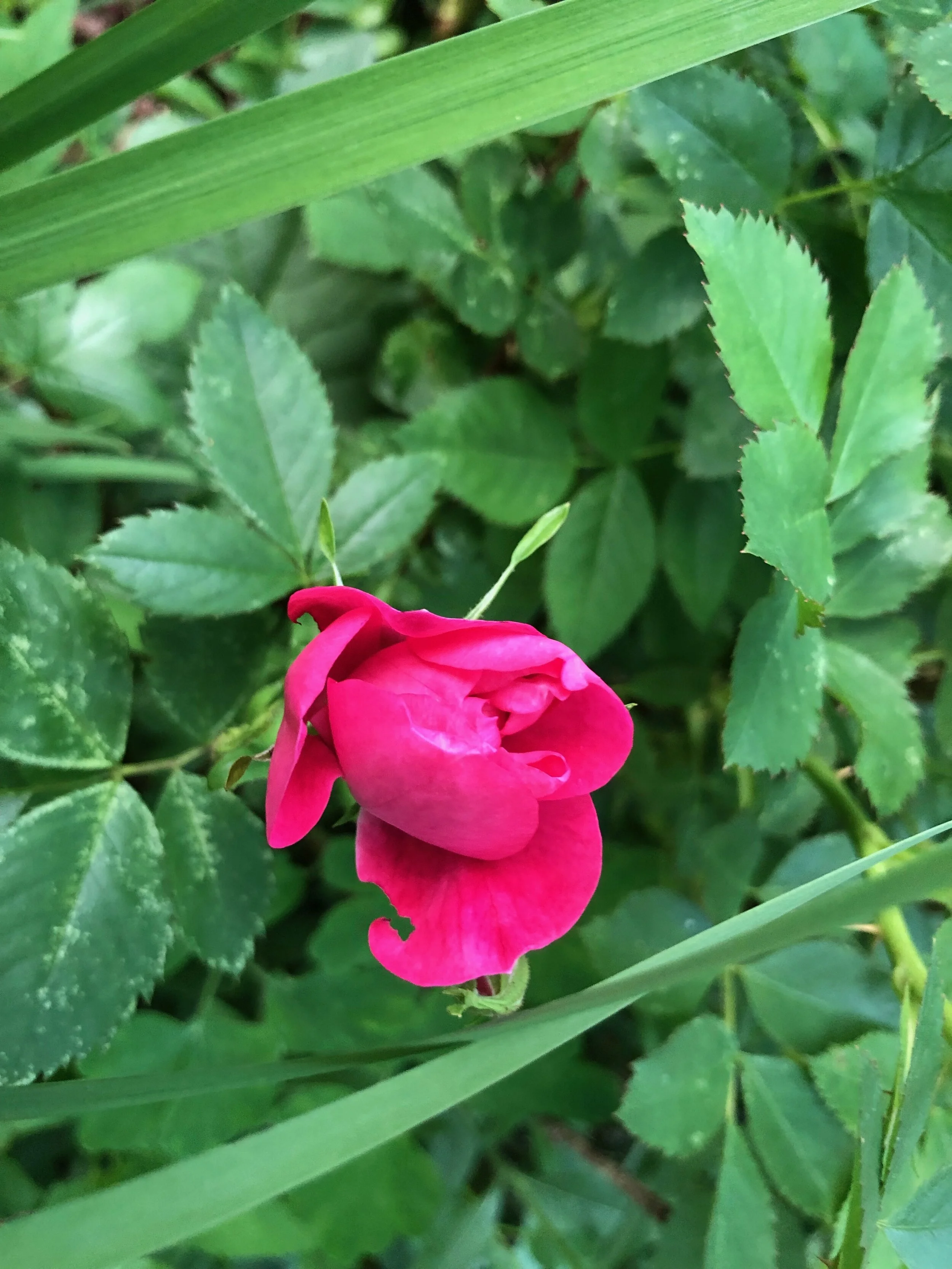What God whispered to the rose
to make it bloom so beautifully,
He shouted to my heart times
one hundred!
— Jelaluddin Rumi, Shadow Dance by David Richo
In late June, I get obsessed with Roses. Waiting for them to bloom, watching the buds get bigger and wider every day. I don’t care if they’re fancy roses or cow pasture roses, they are all beautiful. In fact I love them so much my baby is Margaret Rose and my grand baby is Evelyn Rose, and my middle name is Rosemary, and my grandmother, who I never met, was named Rose. So, June is my favorite month because of the roses, the smell, the anticipation, the absolute beauty of watching them open to the sun during those long days of summer. My roses, which are from my mother’s rose garden, were in the back of my garden, and they didn’t like it much, too much shade for them, but then a few years ago I moved them and wow, they are loaded with buds this year - maybe it’s a rose summer. I would love to tell you the names of my roses, I tried to look them up on the internet and found this: “Old-fashioned roses are a diverse group that includes roses that existed before 1867. They are grown for their beautiful fragrance. Varieties of old-fashioned roses include climbers and shrubs. China and tea roses are included in this group.” Anyway we often try to put things in categories or give them names, when we could just be content to be with the rose.
Now that it’s July, many of the roses have opened, though more are coming, and it seems like I need to do something with the petals. Oh no, I just can’t let them be, I’ve done that for a week or so and now it must be time to harvest rose petals. Youtube has many ideas on what to do with rose petals: rose water, rose oil, dry roses for lasting bouquets, let them become rose hips…
Often, when we have something that catches our attention it’s good to think about why. I found a number of quotes about roses like the one above, and have been posting them on social media with pictures.
Rumi always has something for us to ponder, so I wonder why he says God has to shout to humans so we can hear what the rose hears in a whisper? Did Rumi’s heart hear a loud shout showing him the beauty that surrounded him? Or was he thinking that we need a bull horn to hear God’s voice while the rose is more in tune with the divine? Or is he saying humans are more valuable than roses? I hope not because Rumi is so wise he must know that the rose and the human are both sacred.
Richard Rohr and John Philip Newell have new books coming out about the sacredness of all things. Richard’s title is: Every Thing Is Sacred: 40 Practices and Reflections on the Universal Christ and John Philip’s is called: Sacred Earth, Sacred Soul: Celtic Wisdom for Reawakening to What Our Souls Know and Healing the World. I haven’t read either yet, but the titles are quite similar, don’t you think. There is also a book by Matthew Fox called Order of the Sacred Earth: An Intergenerational Vision of Love and Action. Fox’s book calls for the creation of an order, like a religious order, for people to join and follow practices for holy living based on his creation spirituality. He says: “we are all here as a blessing to one another and to the Earth and it is our responsibility to live out our capacity to return blessing for blessing.” (31) I know the rose blesses me by its beauty and presence and I bless the rose by loving it (and picking off the rose beetles that want to eat the leaves).
Walter Brueggemann, biblical scholar, reminds us we all have a place in creation. “All creation - including human creatures but not especially human creatures - are looked after, cared for, sustained, and protected by the generous guarantees that the Creator has embedded in creation.” (An Unsettling God, p 139) The ‘not especially human creatures’ line in this quote speaks to me that even the writers of the Hebrew scripture so many millennia ago, had a concept of the sacredness of all of creation without the idea of humans being the pinnacle of creation. Or maybe that’s just a modern interpretation on Brueggemann’s part, but it resonates with me.
Indigenous wisdom has long believed that we are a part of creation, as precious and priceless as the rose, but not something more important than the rose. They call the rocks, stones, creatures, plants, sky, earth, mountains, ‘all my relations.’ Sherri Mitchell reminds us that even though we may be one with all creation, we are not the same. She says: “It is the transcendence of our differences and the weaving of our diverse expressions into a tapestry that is harmonized and aligned…[that] we have the capacity to create a world that is compassionately intent on preserving the integrity of all life in a harmonious balance.” (Sacred Instructions, xx)
Harmony and balance. May we walk in harmony and balance, with the roses and with each other, respecting all life, as we seek to follow the way of peace.

